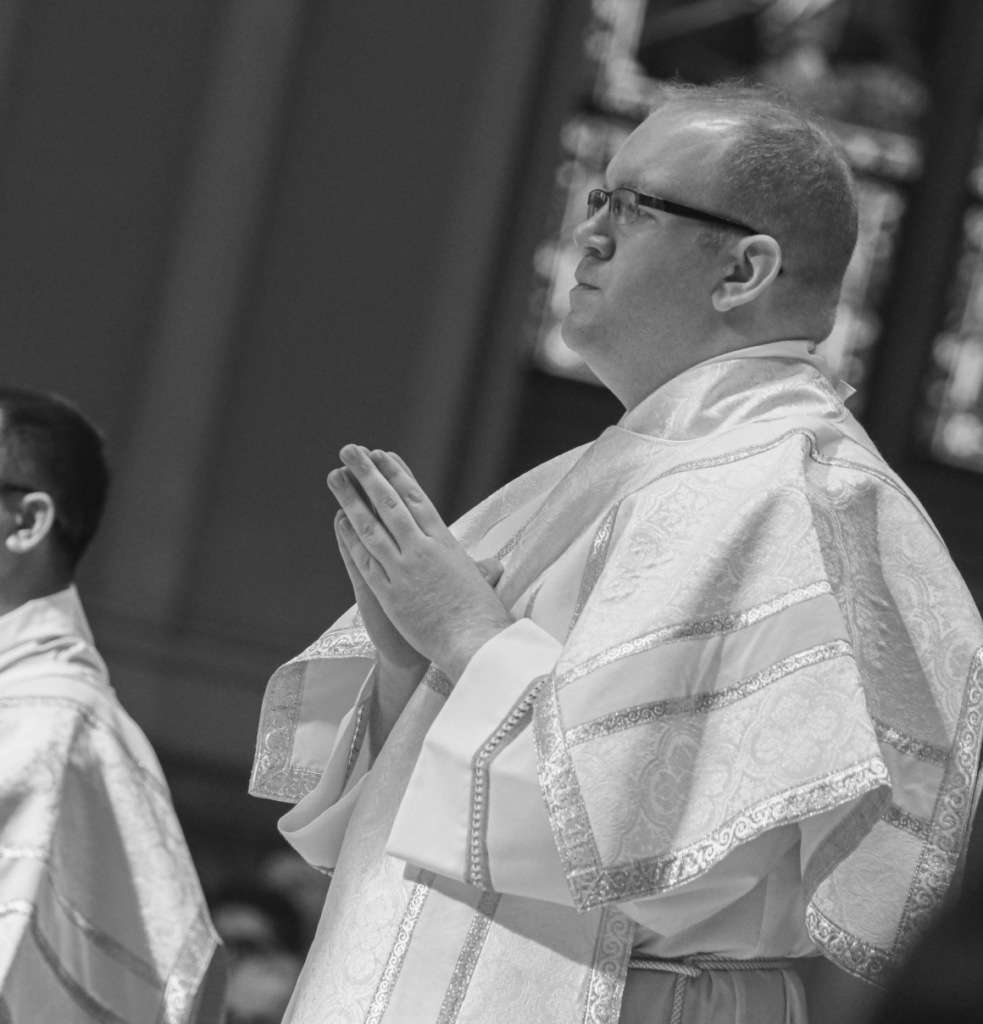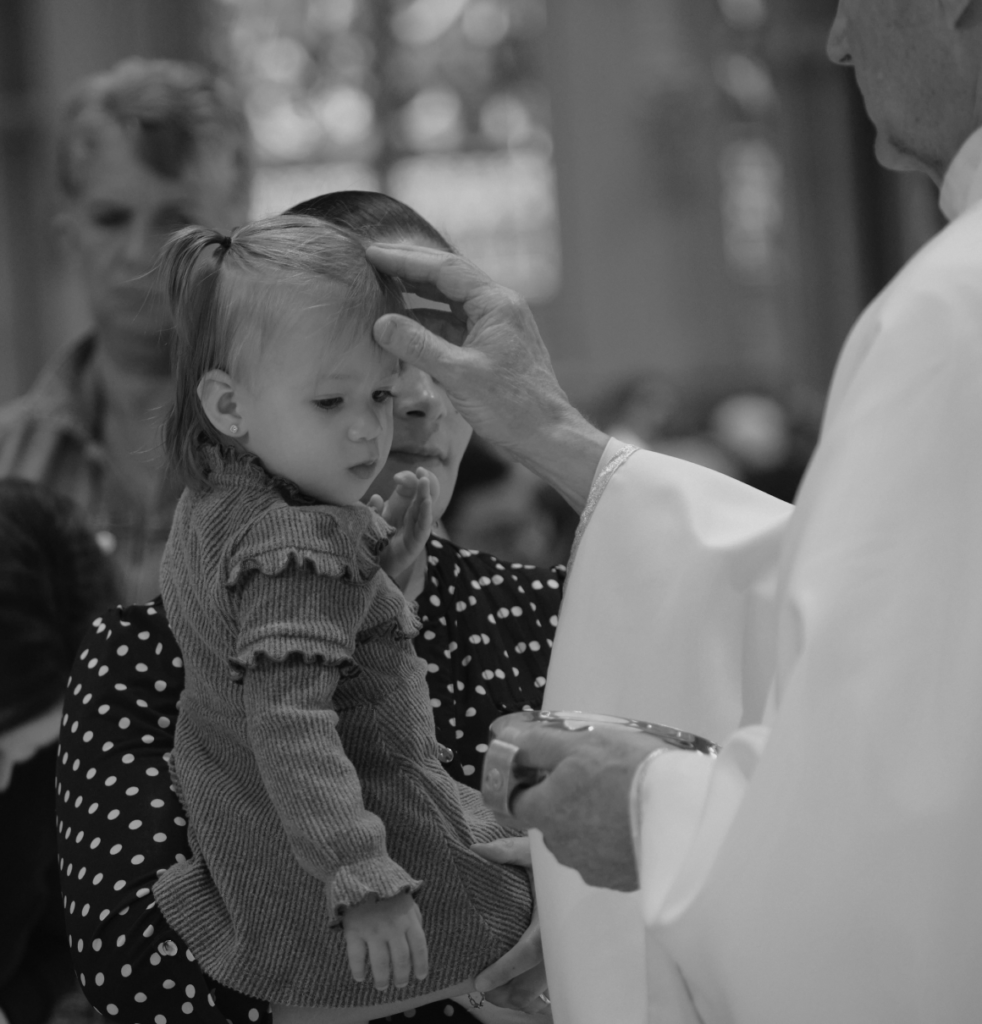learn
What
is a Priest?
St. John Marie Vianney
Every person is called to be a disciple of Jesus Christ. At our baptism, we are baptized into the common priesthood of all the faithful as we are called to our universal vocation to holiness. How we will live out that holiness will be different for each person. Some are called to live holiness as single persons, some within the vocation to the married life, some as religious brothers or sisters, and God calls some men to the ministerial priesthood.
Sacrament of
Holy Orders
—Pope Saint Paul VI
“The divinely instituted ecclesiastical ministry is exercised in different degrees by those who even from ancient times have been called bishops, priests, and deacons” (Lumen Gentium n. 28). “By ordination, one is enabled to act as a representative of Christ, Head of the Church, in his triple office of priest, prophet, and king” (CCC n. 1581). The Sacrament of Holy Orders places an indelible mark on the soul of the man who is ordained and he is “a priest forever.” Through the grace of the Holy Spirit conferred in this sacrament, the man is configured to Christ as Priest, Teacher, and Pastor.
Episcopal Ordination:
The bishops are the successors of the apostles and can trace their ordination through unbroken succession to the apostles who were with Jesus at the Last Supper. Episcopal ordination confers the fullness of Holy Orders. The bishops, in union with the pope, are the authentic teachers of the faith. Each bishop is entrusted with a particular diocese for which he is the pastor. Bishop Thomas J. Tobin was installed as the eighth Bishop of Providence on May 31, 2005.
Ordination of Priests:
The priests are co-workers with the bishops and are consecrated to “preach the Gospel and shepherd the faithful as well as to celebrate divine worship as true priests of the New Testament” (LG, n. 28). One of the promises that is made both in the rite of ordination to the transitional diaconate and to the priesthood is the promise of obedience. “The promise of obedience they make to the bishop at the moment of ordination and the kiss of peace from him at the end of the ordination liturgy mean that the bishop considers them his co-workers, his sons, his brothers and his friends, and that they in return owe him love and obedience.” (CCC n. 1567).
Ordination of Deacons:
Deacons are “strengthened by sacramental grace they are dedicated to the People of God, in conjunction with the bishop and his body of priests, in the service (diakonia) of the liturgy, of the Gospel, and of works of charity” (LG, n. 29). The ministry of the deacon is to serve the bishop and the people of God. A man who is in priestly formation will be ordained a transitional deacon at least six months before he is ordained a priest. Deacons are configured to Christ who made himself the servant of all. In addition to assisting the bishop and priests in the celebration of the divine mysteries, deacons dedicate themselves to various ministries of charity.
The Rite of Ordination to the Priesthood Explained:

What Does a
Priest Do All Day?
—Venerable Archbishop Fulton Sheen
The priesthood is not as much about what a priest does but what a priest is. Still, there are many aspects of a priest’s ministry that are common to the priesthood. The priest is ordained to proclaim the Word of God.
What is
Celibacy
—Pope Saint Paul VI, Sacerdotalis Caelibatus,
Priestly celibacy is seen as a “brilliant jewel” when we have a good understanding of both the call to celibacy and what it represents as well as a good understanding of ourselves.

